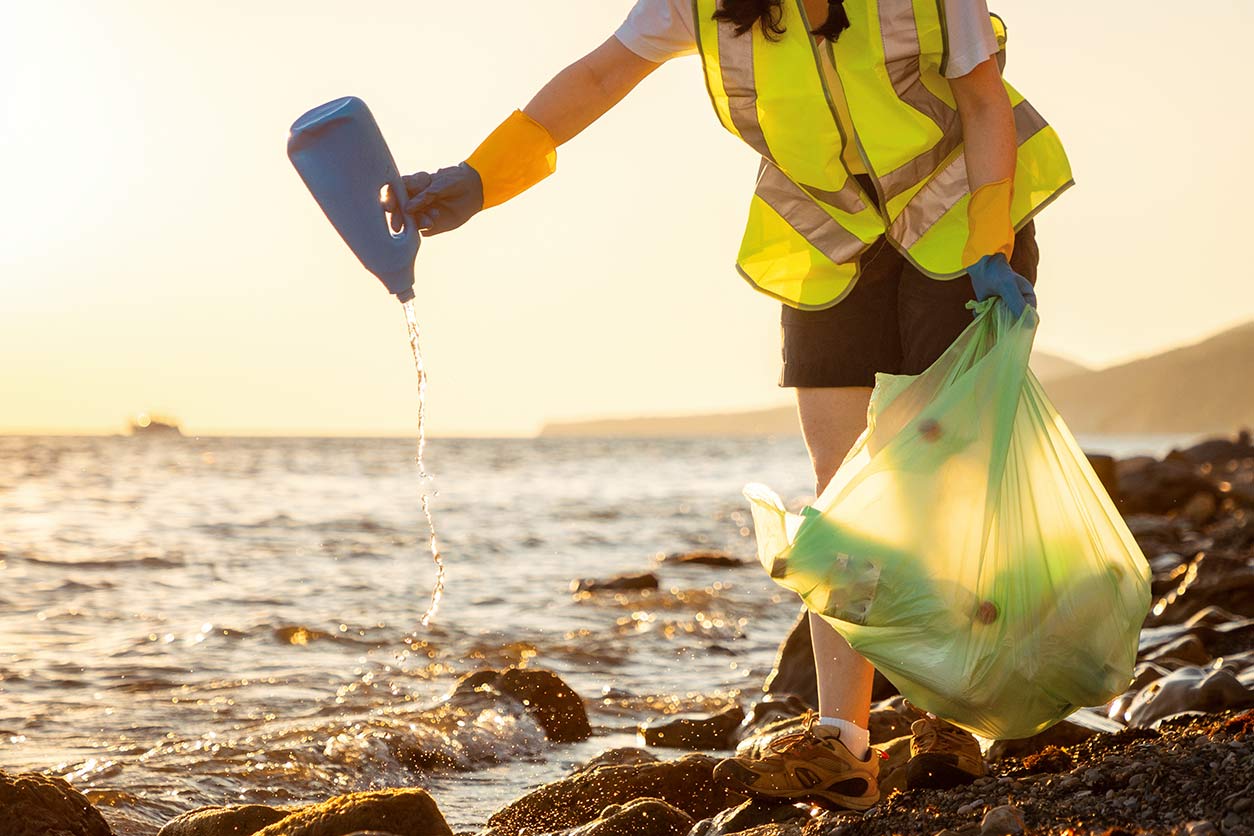NIEHS postbacs recognized during annual NIH poster day
Twenty-six postbaccalaureate (postbac) fellows from NIEHS traveled to Bethesda, Maryland to present at the 2024 National Institutes of Health (NIH) Postbac Poster Day. Eight of these fellows were recognized as “outstanding” for having authored posters that scored in the top 20%. The May 1-2 event allowed postbacs to share their research with each other and the broader NIH community.
Congratulations to the following fellows.
- John Dong, Neuroepigenomics Laboratory, Mentor: Elizabeta Gjoneska, Ph.D.
- Hope Hawthorne, Epigenetics and Stem Cell Biology Laboratory, Mentor: Traci Hall, Ph.D.
- Abigail Kitakule, Reproductive and Developmental Biology Laboratory, Mentor: Humphrey Yao, Ph.D.
- Skylar Montague Redecke, Reproductive and Developmental Biology Laboratory, Mentor: Francesco DeMayo, Ph.D.
- Maira Perez, Reproductive and Developmental Biology Laboratory, Mentor: Carlos Guardia, Ph.D.
- Elvis Quiroz, Reproductive and Developmental Biology Laboratory, Mentor: Francesco DeMayo, Ph.D.
- Alanna Stewart, Epigenetics and Stem Cell Biology Laboratory, Mentor: Paul Wade, Ph.D.
- Tia Vierling, Neurobiology Laboratory, Mentor: Serena Dudek, Ph.D.
For a full list of award recipients, visit the NIH Office of Intramural Research and Training. (EH)
Horizon scanning workshop gets proactive about environmental concerns
During a two-day virtual workshop hosted by NIEHS April 30 and May 7, participants discussed the importance and implementation of horizon scanning, which is a proactive way to identify and improve responses to emerging chemical contaminants, emergencies that lead to chemical exposures, and new issues of concern that might lead to re-consideration of their chemical safety.
“Horizon scanning is needed because decision-makers depend on timely access to high-quality, actionable information to protect public health,” said Ruth Lunn, Dr.P.H., head of the Report on Carcinogens, who welcomed attendees.
On the first day, 12 experts outlined the horizon scanning approach, including current practices across government, gaps and weaknesses, and ways that its implementation might be advanced through a a collaborative directed effort — a community of practice. The talk’s themes were related to chemical and non-targeted methodology to identify contaminants, geospatial mapping approaches to identify sources and populations affected by pollutants, and non-traditional strategies for getting input. This discourse helped inform the subsequent Day 2 breakout group and round-table discussions, which were moderated by Kirsten Overdahl, Ph.D.
Participants were asked to consider what advancements are needed, and what a community of practice may look like. In addition, workshop participants outlined key features to lay the groundwork for building an interagency, interdisciplinary community of practice for horizon scanning that would also include affected communities.
For more information about the workshop led by the Emerging Contaminants and Issues of Concern Program Management Team, visit this webpage. (EH)
National PFAS conference spotlights community and clinician engagement
The 2024 National PFAS Conference held June 10-12 in Ann Arbor, Michigan, stressed the importance of community engagement, community-university partnerships, and building the capacity of clinicians as it relates to PFAS-exposed patients.
Sponsored in part by NIEHS, speakers included the following grantees.
- David Collier, M.D., East Carolina’s Brody School of Medicine.
- Jamie Dewitt, Ph.D., Pacific Northwest Center for Translational Environmental Health Research.
- Dana Haine, University of North Carolina at Chapel Hill Institute for the Environment.
- Detlef Knappe, Ph.D., North Carolina State University.
- Katy May, North Carolina State University’s Superfund Research Program.
Attendees overwhelmingly reported feeling that the conference was invaluable and contributed to current scientific and policy discussions about PFAS,” said May, who has been summarizing evaluation feedback from attendees.
For more information, visit the conference website. (EH)
Curbing plastic pollution, bolstering research

The first comprehensive strategy to reduce plastic pollution at the federal level was launched July 19. A major goal: Phase out federal procurement of single-use plastics by 2027 — and from all federal operations by 2035 — to reduce use of plastics that are used only once in food service operations, events, and packaging and then thrown away.
The Mobilizing Federal Action on Plastic Pollution: Progress, Principles, and Priorities plan highlights NIEHS-supported research to better understand the effects of plastic pollution. NIEHS and the U.S. National Science Foundation recently funded a new Oceans and Human Health Center focused solely on small plastic particles called microplastics. Researchers from the University of Rochester and the Rochester Institute of Technology will study the life cycle of plastic in Lake Ontario as it pertains to ecological and human health. Read the full plan here. (ST)
(Erica Hinton is a contract writer for the NIEHS Office of Communications and Public Liaison and Sam Tyler is a technical writer-editor in the same office.)
Source link
factor.niehs.nih.gov


